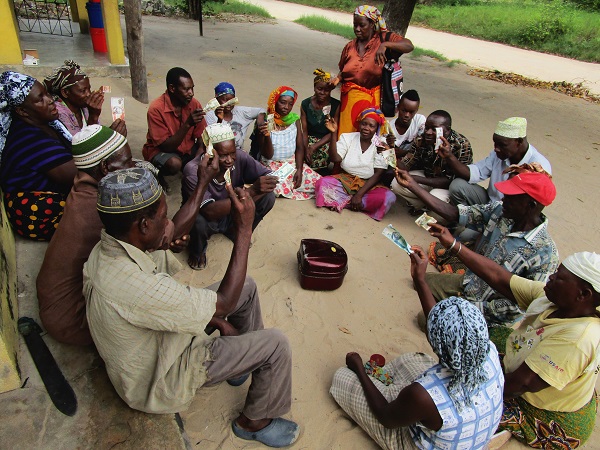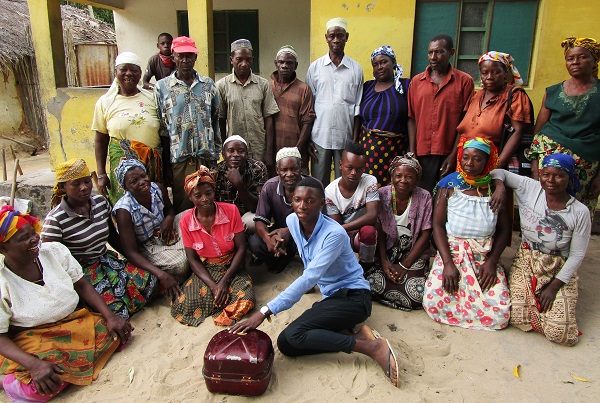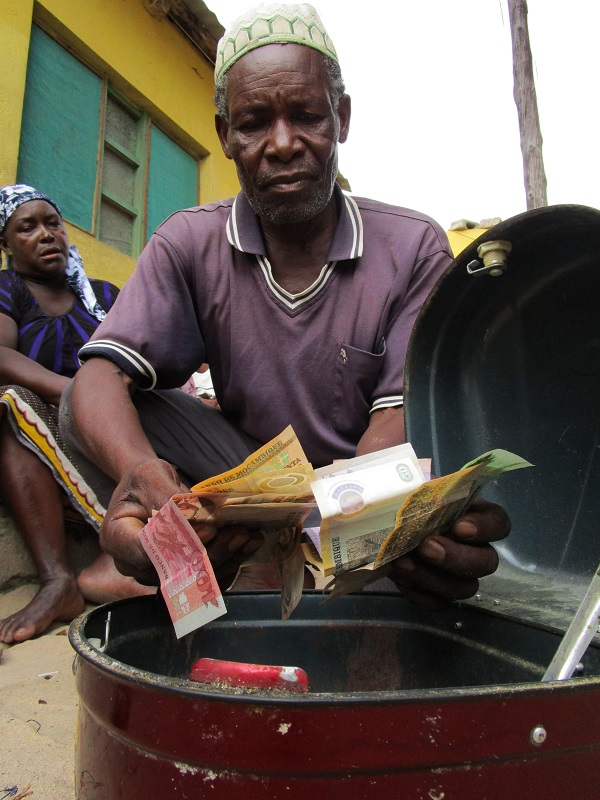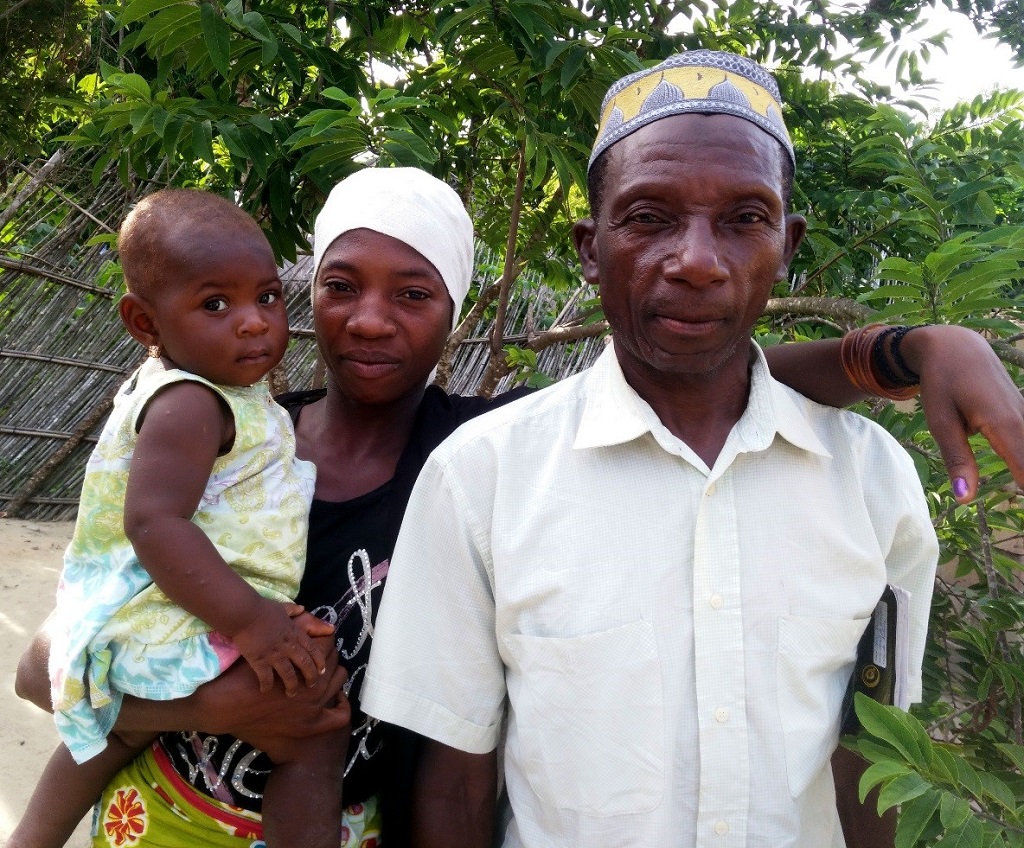Nampula, Mozambique – Munamine Coyariatyo walked under the hot sun, navigating the road’s mix of mud and dust en route to visit Sónia Remane. As a traditional birth attendant and member of the local community health committee (CHC), Coyariatyo wanted to ensure that Remane, a 32-year-old mother of three, was doing well – after all, she was due to deliver her fourth child soon.
But after a warm reception by Remane’s family, Coyariatyo was told that the pregnant woman had not been feeling well. Unfamiliar with a birth plan, Remane had not attended the recommended antenatal care visits and had delayed receiving care at a health facility despite having constant stomach pain.
Complicating the situation was the family’s financial state: Remane was unemployed, her husband was a fisherman, and together they lacked the necessary money for transport to the nearest health facility for delivery. As a result, Remane intended to give birth at home without a skilled birth attendant, a potentially life threatening situation.
Trained by MSCP on maternal and newborn danger signs, Coyariatyo recognized the risks this decision posed to both mother and baby, and knew there was no time to waste. She had previously helped to join the community’s CHC with a village community bank (VICOBA), and reached out immediately to her fellow CHC members about the dilemma. Although Remane was not part of the CHC, the members agreed to give her 500 MZN (about $8 USD) from their social fund to cover her transport costs.
The money enabled Remane and her husband to purchase fuel for a private motorcycle to take her to the health facility eight kilometres (about 5 miles) away. The following day, Remane, Coyariatyo and the motorcycle driver took the trip and, just a few hours after arriving at the health facility, Remane gave birth to a healthy baby boy.
“We couldn’t leave the pregnant woman when she needed us,” Munamine said. “She was lucky, but most of the time, many women don’t have the same luck. With social funds, we can help others from our community in case of an emergency.”
In many places where MCSP works, a small amount of money – and a plan – for a health emergency can mean the difference between life and death. In Mozambique, MCSP is reducing this obstacle to care by assisting health authorities to establish and revitalize CHCs, which work to raise local awareness of best health practices. This includes strengthening the functionality of CHCs by adapting the VICOBA approach to the local health context, and involving the community in actions to improve their own health and development.
In Coyariatyo’s community of Renate, this meant creating a sustainable income generating activity that supports the group’s initiatives. To facilitate this, MCSP helped to strengthen the skills of the 20 CHC members and teach them how to maintain a functional VICOBA. Program trainings motivated the community to start up a “social fund” as well as a savings and loan program, and individuals began contributing small amounts of money each week to a community box.


The VICOBA methodology has two important components:
The savings and loan program enables eligible members to obtain a loan for up to three times the total amount of his or her savings. The borrower must pay back the loan with interest (5%-10%) and, at the end of the cycle, the total amount is returned to the members along with proportional dividends earned from the loan interest.
Social funds allocate fixed amounts that are agreed to by VICOBA members as contributions to the community to focus on social issues. CHCs have autonomy to determine how the fund is used, although MCSP encourages its use for maternal, newborn and child health-related emergencies, and to support the health needs of vulnerable populations.
To date, Ratane’s CHC has saved more than 70,000 MZN (about $1,150 USD) in its social fund – an astounding sum in a community where families struggle to meet basic needs. Since it was established, the fund has been used by members for emergencies like Remane’s – when transport or fuel is urgently needed to reach a health facility – as well as to purchase medicine.

For Remane, the decision to join the Ratane CHC’s VICOBA was an intensely personal one. “I was risking losing my baby,” she said of her health before the group loaned her money for emergency transport. Since joining the CHC, she’s learned a lot about health, she said, adding, “I particularly liked the topics like birth planning.”
The ripple effect of these efforts across Mozambique has been profound:
- 380 other MCSP-supported CHCs linked to VICOBAs have collectively saved 4,038,244 MZN (about $67,304 USD).
- These funds have been used to improve access to emergency transport for children and pregnant women to health facilities.
- A total of 380 CHCs (266 in Nampula Province and 114 in Sofala Province) have implemented this approach and are using the resources to contribute to the purchase of fuel for motorcycle ambulances or other forms of emergency transportation.
- As a result, a total of 10,909 community members across both provinces were transferred to a health facility for medical emergencies since this year began: 2,331 pregnant women; 2,881 children under five; and 5,697 adults.
By strengthening their capacity to identify, address and overcome their own challenges, MCSP is helping communities in Mozambique to help themselves. In places like Ratane, where the absence of $8 once meant possible death or disability, neighbors are now aiding each other to survive their most pressing health and social problems.

